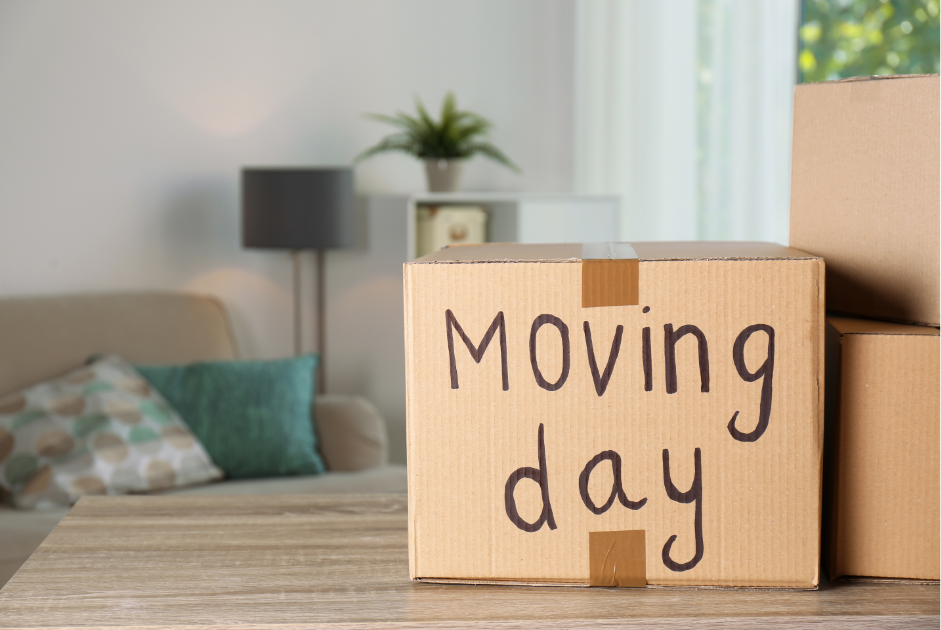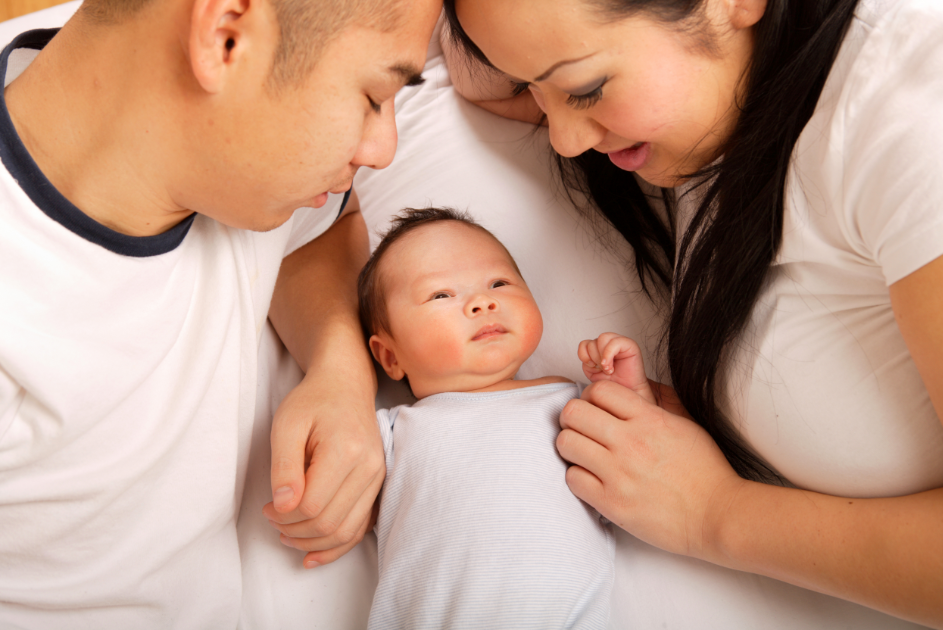This mom's real talk about traveling with an autistic kid might make you laugh and cry.
When my daughter Emma was born, I pretty much kissed my list of dream vacations goodbye.
Traveling with kids at all, even kids without special needs, is usually pretty different from a non-kid vacation.
Ah, good times. GIF via "The Hangover."
But Emma, who is now 6, has autism spectrum disorder. So traveling to even local places like the grocery store can be tough for her.
Let me be Blunt Mom for a moment: There was a long stretch of time when I would easily burst into tears from the sheer frustration of not being able to go anywhere because of the inevitable resulting sensory-induced tantrums (hers) and tsk-tsk-judging-you stares (everyone's, it felt like). They were an emotional traveling travel tax that was just too high to pay.
A trip to a store for Emma sometimes means "I claw your face and scream until we. GO. HOME." All photos courtesy of Tana Totsch-Kimsey.
But I have another daughter, one who is not autistic and is already earmarking her own "must-see" places.
So when 11-year-old adventurer Julia suggested that we explore the national landmarks and U.S. historical sites of Washington, D.C., as a family (mostly so we can imagine that we are Nic Cage about to crack centuries-old codes and uncover fabulous treasures right under everyone's noses), I didn't want to say no. Plus, this seemed like a slightly more doable plan than her desperate insistence for us to visit the Taj Mahal.
But I was still left with this thought: How can I even do this?
Traveling places with a child with autism or other conditions is daunting.
I've pushed our family to do it before because — honestly — you just can't stay home all the time. A few adventures have gone unexpectedly well. But there were also times I crawled home, wanting to hide from the world for the rest of forever.
The highs and lows are seriously real. GIF via "Tangled."
In this case, I said yes. Why not? And it wasn't easy, but it was worth it.
So I have some not-so-sage advice to all the parents out there: Just do it. You might be surprised with your own capabilities and the amazing human nature of other people.
Here are six things this most recent trip with a daughter with autism in tow revealed to me:
1. Go ahead and panic.
I would say don't panic, but that would feel pat to me. I have anxiety, and I know it doesn't just turn off. And on Emma's worst days, planning a trip across town can fluster me enough to not go.
But there are always going to be reasons to not go, so I panicked. Then I said yes to this trip. What if she gags herself the entire 12-hour car ride? What if she gets away and dashes like a wildcat into the White House China Room and breaks the Wilsons' dining set (obviously the prettiest) and the Secret Service swoops in and...
Well, this is what Emma really thought of the presidential plates:
Maybe all those things you fear will happen. Maybe they won't. Emma actually did break down the first night at the hotel, insisting at top volume, "We go? Car?" while throwing all the things in the room. That night, I found I had more patience than I thought. And all the subsequent nights? The bedtime tantrums tapered, and I learned Emma has a secret power to adapt despite all evidence to the contrary. Surprising!
Whatever happens, you and your kid will figure it out. At least that's what I repeat to myself to get us out the door.
2. Some people leave the judgy-ness and worry at home, and they look happy.
Moment of honesty: I used to be one of those people who judged those other people using child leashes.
The fancy term for what some kids with autism and other developmental issues do is "elopement," and Emma "elopes" with the mystical powers of Houdini. I no longer begrudge anyone using any type of invention that gets you and your child out in the world.
GIF via "Modern Family."
I don't use a leash, but I do have a stroller designed for older kids. It deters Emma in her sport of running off, and more importantly, the hugging-type security of it keeps her calm when I'm breaking her routines. I totally indulge in using it when we go to overstimulation-filled places for her sanity and mine.
And yet — I'm still usually pretty embarrassed about it. More than one parent-type person has baldly said to me, "She's a bit big for that, hm?"
Some days, this gets to me. On this trip in particular, I was holding in a snappy comeback to one such comment when I noticed things: A family was helping a preteen girl in a back brace move around the museum we were at; an older man on a scooter had a foldable wagon attached toting a seemingly unwell but happy toddler; there was even a boy in a setup kind of like Emma's.
Lots of parents are out there helping their kids find a way to do things even if it's unusual, and that is a delightful thing to see — delightful enough to quiet the doubts and the haters. For me, anyway.
3. I'm actually a little bit glad my kid pulled off that person's headscarf.
Emma is not a "typical" kid when it comes to sensory issues — if there is such a thing as typical. In a crowd, she doesn't shy away from people or objects; instead, she wants to engage with everything and everyone.
This leads to so many super-awkward moments, and I spend a fair amount of time when I'm places with Emma apologizing for all kinds of inappropriate invasions of space. Despite many years of doing this, I still feel a pit of fear and brace myself, expecting a reprimand for not being able to control my kid.
But you know what? (Lean in close: This is a life-changing secret.)
Most people are kind. Actually, really, and truly kind. And understanding.
Obviously I try to keep Emma from grabbing strangers. But when the need to reach out to people overcomes her, the typical response is a smile, a chuckle, a "That's OK!" or — the best — the beginning of a conversation.
On this trip, Emma spotted a woman with a Tiffany blue-and-gold-trimmed head covering and head-to-toe outfit. Apparently, she instantly felt the urge to not only see what the material felt like but also to give it a good yank — nearly pulling the woman down backward — and I was deeply mortified, certain this entire family was going to see the gesture as a personal attack.
I grasped the woman's arm, apologizing profusely, but she was laughing. She addressed Emma with a "Well, hello there!" and assured me she also had curious kids who'd done equally awkward things before. We bonded over common parenting ground. We had a lovely chat — during which I blurted that I had been admiring her outfit and was actually glad for the chance to tell her so — and we exchanged knowing-parent chuckles whenever we crossed paths the rest of the day.
4. Very, very few people say no to a hug.
Emma sometimes gets so enamored when people interact with her that she asks for hugs and gives them with a lot of enthusiasm. It's stressful parenting a child who has zero sense of stranger danger, but it's also a delightful surprise that so many people go in for the hug.
One Smithsonian staffer even calmed my over-apologizing by saying, "Why wouldn't you want to hug a happy little thing like that?" and gave her squeezes until the elevator buzzed for the doors being open too long. A lot of people even told me that the random hug made their day so much better.
5. Sometimes you have to retrieve a toy from a dinosaur exhibit.
With a museum docent standing right there. And a sign that says "do not lean over railing" — much less hoist your mom body over it. While your kid is mourning said toy at the top of her lungs.
But you just do it (and maybe go sit alone on a bench with your frustration and tears for a bit after).
There it goes again.
I'd love to say this trip was all successes — but that's not reality.
Amid the joyful parts, there were plenty of "this just sucks" moments. Emma may or may not have broken (er, lightly damaged) a cataloged artifact at the Natural History Museum. She disliked touring the Senate chambers so much that she gagged and spewed on the floor, and the guide was actually not all that nice or understanding about it. Anytime things were going too smoothly, she would take off her shoes and throw them hard and far.
But I also didn't die of embarrassment or give up and go home. I did find myself wondering if pushing Emma to her limits just so our family could visit some places and see some things was really even worth it. Was any of it making an impression with her at all? It surprised me to think that way — but then, no person can be expected to always see the sunny side.
6. But sometimes, like Emma, we can all soar among the stars.
I agonized over our trip to the National Air and Space Museum. It was expensive, but my inner space geek really wanted to see the IMAX film about dark matter (Neil deGrasse Tyson? Yes, please!). My oldest daughter wanted to go. My husband was indifferent. And then: Emma. Expecting her to sit quietly through 40 minutes of some pretty hefty and abstract concepts seemed crazy.
But ultimately, I just went for it.
Neil deGrasse Tyson dropping some inspiration, like he does.
The sensory experience of a domed-screen, surround-sound theater was a bit overwhelming for Emma at first. I retrieved thrown items and insisted on "quiet voice" for several moments, wondering if I should bail before people started complaining.
But after a few minutes, I was absorbed in the film — and then I noticed that Emma was, too. She reached up to try to touch the dark speckled screen and asked me, "Star?"
Kids can be excellent tour guides through life.
When you have a kid whose needs demand big pieces of your attention, it can be easy to let that start to structure — and limit — your own life and the lives of people closest to you. I mean, being a sibling to a kid with autism or other disorders? It's gotta be a tough gig, too.
But Julia and her imaginative, ambitious nature remind me daily to do things because you want to do them. She — like Emma — is less concerned with how it will all turn out or what other people will think. There's an adventure in just doing the thing, whatever happens.
And all the other people out there? They're part of the adventure too. The kindness, inventiveness, and empathy of human nature were perhaps the most beautiful things I discovered on this trip.
I hope Julia and Emma both keep that "Why not?" spirit for many years. I hope they can trust that human nature is not nearly as cynical as it first appears. And I hope, most importantly, that their (or my) stockpiled must-see lists don't get dusty again.
- Five years ago, this five-year-old with autism spoke for the first time and his pride is still inspiring - Upworthy ›
- Grandma shares her must-have device for safe traveling, especially for parents with kids - Upworthy ›
- Little girl entered a talent show without telling her mom, and the crowd went wild - Upworthy ›
- Dolly's cranberries, Marilyn's stuffing, Pamela Anderson's veggie pot pie and more celeb sides - Upworthy ›



 Student smiling in a classroom, working on a laptop.
Student smiling in a classroom, working on a laptop. Students focused and ready to learn in the classroom.
Students focused and ready to learn in the classroom.
 Musical ability sometimes shows itself at a very young age.
Musical ability sometimes shows itself at a very young age.
 Fish find shelter for spawning in the nooks and crannies of wood.
Fish find shelter for spawning in the nooks and crannies of wood.  Many of these streams are now unreachable by road, which is why helicopters are used.
Many of these streams are now unreachable by road, which is why helicopters are used. Tribal leaders gathered by the Little Naches River for a ceremony and prayer.
Tribal leaders gathered by the Little Naches River for a ceremony and prayer.
 A UPS truck with package deliveries.Image via Wikipedia
A UPS truck with package deliveries.Image via Wikipedia
 Empty nesters are happy with a job well done.
Empty nesters are happy with a job well done.  Older couple on vacation.
Older couple on vacation. Parents in Spain, Norway, Sweden, Portugal, and more are enjoying more time off to spend with family.
Parents in Spain, Norway, Sweden, Portugal, and more are enjoying more time off to spend with family. American parents would be happier with more time to spend with their families.
American parents would be happier with more time to spend with their families.